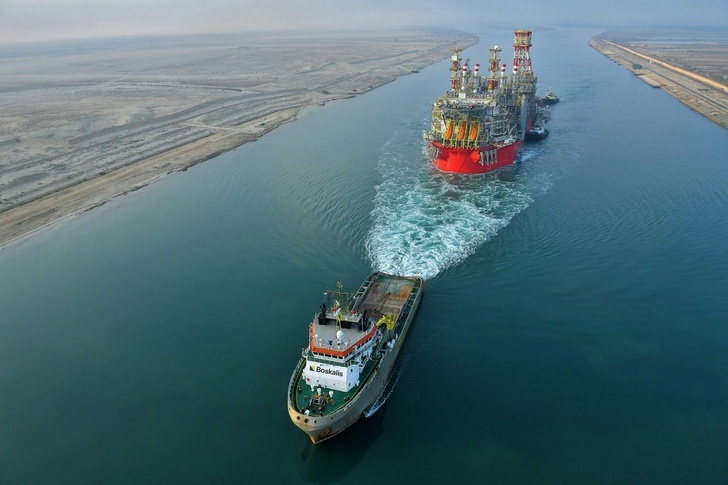The chairman of Egypt's Suez Canal on Thursday affirmed the waterway is "not for sale", in a bid to allay fears over a draft law under discussion in parliament.
On Tuesday the legislature approved in principle a bill proposed by the government seeking to establish a sovereign wealth fund "that can carry out all economic and investment activities" for the Suez Canal Authority.
The draft bill has sparked wide debate on social media. Many fear the fund would undermine the state's sovereignty over the waterway which accounts for roughly 10 percent of global maritime trade and is a vital source of foreign currency for economically-battered Egypt.
Suez Canal Authority chairman Osama Rabie said in a news conference on Thursday that the canal cannot be "sold, leased or borrowed for collateral".
He added the purpose of the fund is to invest in mega-projects.
The proposed bill comes with Egypt's economy struggling under growing foreign debt, and the local currency plunging against the dollar.
In October the government said Egypt had clinched a $3 billion loan deal with the International Monetary Fund conditioned on a currency depreciation and state subsidy cuts.
Economist Hani Tawfiq suggested in a Facebook post that the purpose of the proposed sovereign fund would likely be to "exchange state debt for bonds issued by the fund (and) guaranteed by Suez Canal revenues".
Rabie nonetheless denied this in his press conference. He said the purpose of the fund was to draw foreign investment.
But the bill has already provoked widespread anger among Egyptians on social media, where it was among the top trending topics all week.
Former Suez Canal chairman Mohab Mamish said the new law would be "impossible to implement and opens the door to unprecedented changes... that allow for the presence of foreigners in the Suez Canal's management".
The foreign investors could "change the system upon which the canal's management has been based for years and which has returned record profits", Mamish said in remarks published by local media.
mon/jsa/it
© Agence France-Presse
Your content is great. However, if any of the content contained herein violates any rights of yours, including those of copyright, please contact us immediately by e-mail at media[@]kissrpr.com.
Source: Story.KISSPR.com

